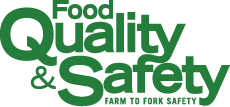
If you’re in the food service industry you know that few industries are as complex or evolve as rapidly as this one. The ever growing list of responsibilities for a successful food manager suggests someone who is part chef, fortune teller, engineer, magician, recruiter, and trainer who is able to:
- Forecast changing consumer preferences and trends,
- Identify global sourcing to meet the demands of fickle customers,
- Ensure training among all staff despite high employee turnover, and
- Diligently implement safe food handling practices to prevent a food incident.
These are just some of the challenges food industry professionals face. Few challenges, however, are as critical or as daunting as preventing illness, and possibly worse, as a result of a foodborne illness outbreak. It is not surprising that industry professionals, who were eager to ensure they would be prepared to handle an outbreak or a food recall, were the impetus for a program most recently funded by the FDA called the Industry-Foodborne Illness Investigation Training and Recall Response (I-FIIT-RR).
Many organizations are involved in efforts to mitigate the effects of the estimated 48 million annual foodborne illnesses on public health. The National Environmental Health Association (NEHA) developed a program that brought various regulatory professionals together to collaborate on foodborne investigation trainings that they were often called upon to assist. These workshops, called Epi-Ready, brought together for the first time laboratory, public health, environmental health, and epidemiology practitioners to train for an outbreak investigation and look at the roles, responsibilities, and perspectives of each profession to form a better collaboration and response.
News about the Epi-Ready workshops spread among food industry professionals who could see the immense benefit of receiving training prior to an outbreak alongside the regulatory people who would be involved in an outbreak investigation. The collaborative training model of I-FIIT-RR is directed at the retail food industry, which provides a direct link to the consumer and food products. This completes the communication loop between environmental health professionals who are tracking the potential cause of an illness outbreak or food recall and the public whom they strive to protect.
“Finally industry is brought into the fold as active participants in the investigations process,” says Cindy Rice, RS, MSPH, CP-FS of Eastern Food Safety.” They have the ability to respond, and this course brings them out of the dark, giving them what they need to know so they can take action.” Rice is a national food safety consultant who owned her own catering, café, and food manufacturing businesses.
Working Together
The success of the four I-FIIT-RR workshops held in 2013 and 2014 was immediately apparent. Regulators, who had plenty of knowledge about illness investigations but limited time and staffing resources to go it alone, complemented industry professionals, who were committed to being active participants in the investigations and recall process but needed support and guidance from their regulatory counterparts. As a direct result of the workshops, not only were collaborative relationships forged, but several resources were created and are now available from www.nehafoodsafety.org for food safety professionals that benefit both industry and regulatory agencies.
The Recall Response Form allows industry to document their activities during a food recall and can be used to streamline communication between industry and the regulatory agency during a food recall. Proactively forwarding this form to the appropriate food regulatory agency allows that agency to be fully informed early on in the recall process, improves collaboration, and enables a more efficient process that maximizes use of limited resources.
Another resource was developed that sums up the collaborative ideas from industry and regulators to improve food recall investigations. Suggestions to Improve Recall Response is also available at www.nehafoodsafety.org.
ACCESS THE FULL VERSION OF THIS ARTICLE
To view this article and gain unlimited access to premium content on the FQ&S website, register for your FREE account. Build your profile and create a personalized experience today! Sign up is easy!
GET STARTED
Already have an account? LOGIN
